NHK (Page 3)
From Castle Day to Haircut Day, there’s an old-school, black-and-white video for any occasion!
The mascot character for Japan’s national broadcaster would like to show his “domo” by making you pay for his food.
Disney is getting its hands on all it can this year—you’ll even be able to catch a special performance by Star Wars characters and Arashi at annual singing contest Kohaku Uta Gassen this year.
Why have a boring old round Christmas pudding when you could have a delicious fruit-cake version of Japan’s national broadcaster’s mascot on your table?
I often enjoy watching the educational programming of NHK’s E-Tele in the mornings with my family while we get ready for the day. It’s full of fun and educational shows that teach everything from English to geography, and Pitagora Switch (Japanese pronunciation of “Pythagora Switch”) is a big crowd favorite. It showcases cute little machines similar to Rube Goldberg devices where a ball travels along an array of painstakingly arranged cups, springs, ramps, pulleys and whatever else they can cram in to get to the other end.
My two-year-old daughter always gets a kick out of its blend of physics and fun, and now apparently so does much of the Western world after a segment of the show posted onto YouTube has received rave reviews on Reddit for its unique combination of story-telling and Rube Goldberg machinations.
On March 18, three terrorists attacked and took hostage patrons at the Bardo National Museum in Tunisia, killing 21 people and injuring about 50 others. Among those injured was Noriko Yuki, a Japanese tourist visiting Tunisia with her mother.
Ms. Yuki sustained a gunshot wound in the attack and was taken to a nearby hospital for treatment. There, shortly after her surgery, she was immediately bombarded by Japanese media looking to interview her, with some members of the press apparently going so far as to tell the Japanese ambassador watching over her that he did “not have the authority to stop us from interviewing her.”
In Japan, it’s mandatory to pay for a TV licence if you own a television set or device that can receive a broadcast signal. The money goes to NHK, Japan’s national broadcasting service. It’s much the same deal as in the UK, where your television licence funds the BBC.
But what if you don’t even watch any BBC or NHK channels? Should you still have to pay? Actor, director and outspoken comedian Beat Takeshi doesn’t think so – in fact, he’s calling for the option to “opt-out” of accessing Japan’s NHK’s programming for people who don’t want to pay the licence fee.
This week’s large earthquake that struck Nagano, Japan was unfortunately quite damaging. The magnitude 6.7 quake brought down over 140 houses in the area, injuring at least 40 people. When an event like this occurs, everyone switches on their TVs to see how bad things were and where it struck. In Japan, people will often turn to NHK, their nationally funded broadcasting service. Normally a trusted news source, NHK decided to expose the conditions of an otaku’s room where his unique collection was scattered across the floor.
How did they get such an in-depth look at the damage done to a local resident? Was there a connection with someone within the TV station? Did they rush to his home to capture the footage first hand? Nope, they simply pulled the photos “From Twitter” without asking for permission. Can NHK actually do that?
Last year, we brought you news of a court ruling in Yokohama which stipulated that anyone who owns a device capable of receiving a TV signal, regardless of whether they’ve entered into a contract with NHK (Japan’s public broadcasting station) or not, is legally obligated to pay the NHK licensing fee. An important point to note is that the fees are only paid once per household, and not according to the number of TV sets or devices capable of receiving a signal in the house.
However, a recent court decision seems to be taking the issue of NHK licensing fees in a whole new direction. On October 9, Tokyo District Court ruled in a first-of-its-kind lawsuit that the management company behind three Tokyo hotels must first enter into a contract with the public broadcaster. Furthermore, the hotels, all three of which had refused to enter into contracts despite repeated requests from NHK, must also pay their overdue licensing fees in proportion to the number of hotel rooms with TVs.
Just wait til you read how much money that all comes out to be…
On 23 May, NHK announced that it has been working with Tokyo University to create a way to not only transmit images over long distances but to also send the sense of touch. Using this, viewers would also become able to actually feel whatever appeared on screen with their own hands.
This system makes use of Tokyo University’s newly developed device which can measure the dimensions and hardness of an object in three dimensions simultaneously. On the other end, NHK has been hard at work on a Touch/Force Display which would allow viewers to get tactile feedback from the images presented on screen.
It was announced on April 13 that the Kōchi NHK station’s weekday evening news has been showing the wrong icons for weather conditions in the corner of the screen for four years. Where the following day’s weather forecast for the eastern region of the prefecture should have appeared, the broadcaster had consistently been displaying the forecast for the western region.
We’ve talked before about the oddities of how Japan’s public broadcaster, NHK, goes about collecting its fees from ordinary citizens. Rather than sending you an official bill in the mail, collectors will come to your door and ask you for a stack of cash to cover the 13,600 yen (US$133) Japanese residents are technically supposed to pay.
However, many people refuse to pony up the money, since there’s no official penalty for nonpayment, and many feel that NHK’s programming is sub-par and rarely watch it. However, should you make one particular NHK collector walk away empty-handed, he just might mark your house for all to see, as he apparently did to one person we talked to.
As you already know, the third anniversary of the 3/11 Tohoku disaster was remembered this week through a variety of activities, including a fundraiser by Yahoo! Japan which saw the company donating roughly $250,000 to charity. The anniversary was also marked by a powerful earthquake off the coast of Kyushu at around 2 am on March 12, injuring about 14 people and wrecking havoc on innocent anime figures.
It also brought grins to all of the NHK viewers and Twitter users who happened to catch the public broadcaster’s footage of a confused-looking man running around an office in his underwear!
We always suspected that the weatherman didn’t know what he was talking about, but this is just crazy.
It has recently come to light that the NHK Nagoya broadcasting office has been accidentally switching the weather reports for two prefectures. And you’ll never believe how long it took someone to notice.
In a joint effort between NHK and the National Museum of Nature and Science in Tokyo, an international team of scientists was assembled in a quest to be the first to photograph the elusive giant squid in its natural habitat. Their search was made into an NHK special documentary titled, “World’s first photographing! Deep sea giant squid” and was broadcasted in Japan this past January. After its airing, giant squids quickly became a popular topic of conversation among viewers.
In celebration of the documentary’s success, NHK has created a line of giant squid goods. From smartphone cases to squid ink cookies to pencil pouches in the shape of giant squid, there are almost too many tentacles for sale.
On May 27, Sagamihara District Court in Yokohama, Japan, ruled that regardless of whether or not someone has entered into a contract with NHK (Japan’s public broadcasting station), being in possession of a TV-equipped device, like a smartphone or car navigation equipment, is enough by law to be obligated to pay NHK’s licensing fees.
According to NHK News, the same district court ordered a household in Kanagawa Prefecture to pay a TV license fee that was calculated back to when they first bought their TV set many years ago. The total fee came in at a whopping 109,000 yen (US$1,100). Such a ruling is a first of its kind; up until now if you could somehow avoid signing the TV license contract, you could rid yourself of any obligations to pay.
“Risuku (risk), kea (care), toraburu (trouble), asuri-to (athlete); I can’t understand what the hell they’re talking about!” vented 71-year-old Gifu Prefecture resident Hoji Takahashi.
Takahashi, a former public servant and sponsor of the “Cherish the Japanese Language Group,” filed suit against Japan Broadcasting Corporation (NHK) in Nagoya district court on June 25 for emotional distress. Claiming he is unable to comprehend programming content due to the broadcaster’s excessive use of foreign load words, or gairaigo, Takahashi is seeking 1.41 million yen (US$14,000) for the pain and suffering he has had to endure.
Japan is to mascots what Broadway is to theatre or what France is to bicycle racing, and in Japan the Phantom of the Opera or [*name removed*] of mascots has got to be Domo-kun (simply “Domo” in other countries).
From his humble beginnings as a mascot for Japan’s national broadcaster he has achieved international notoriety and an ever expanding line of merchandise. Now, iPhone holding Domo fans may rejoice with the upcoming release of the cute and useful “iPhone Supported Smart Stuffed Toy: iDomo-kun.”
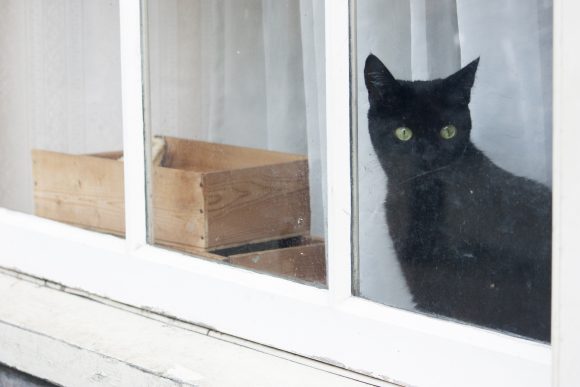
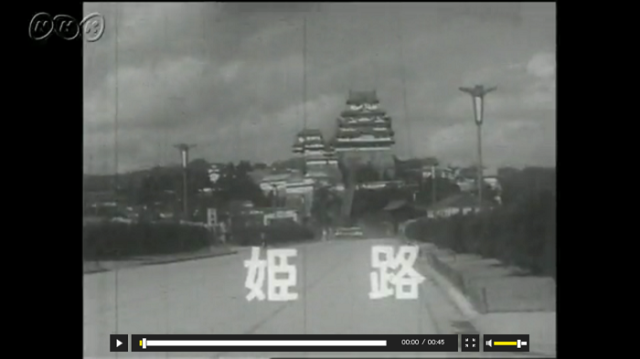

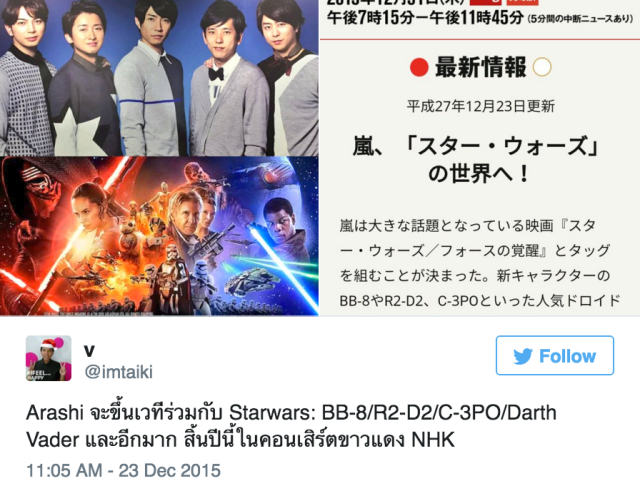

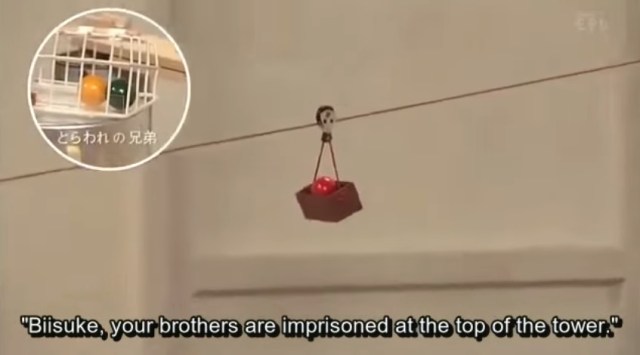

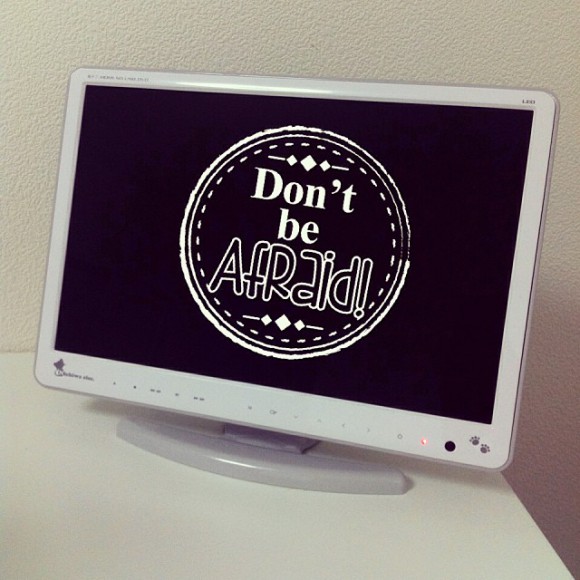
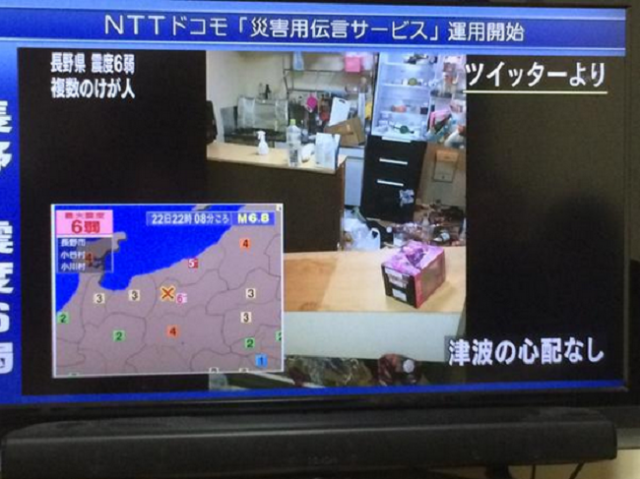
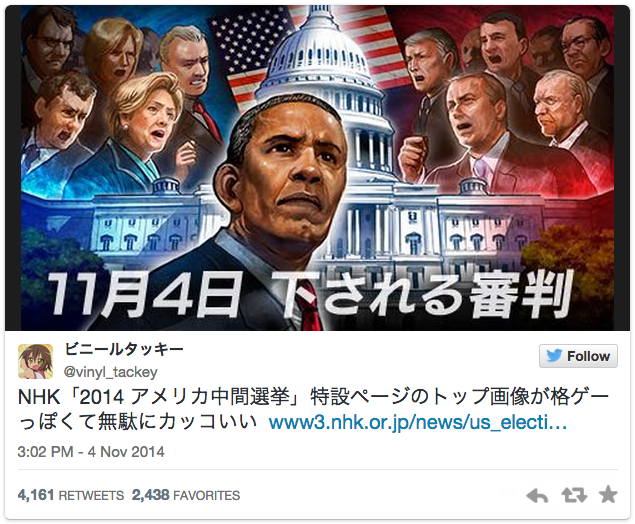
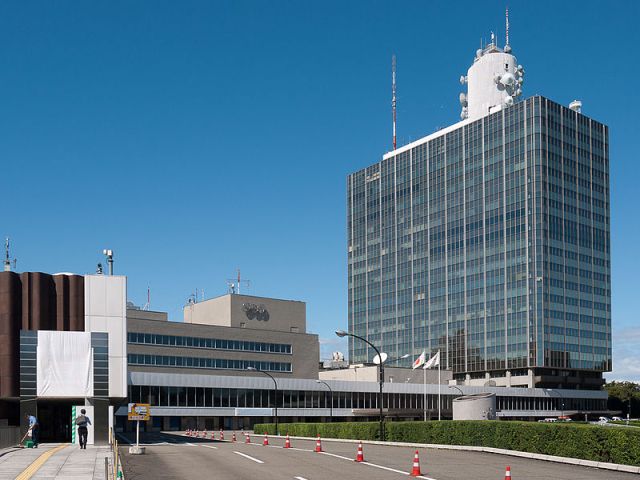
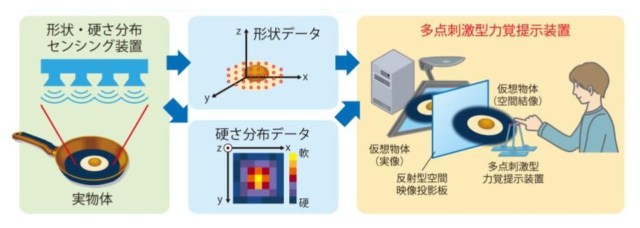
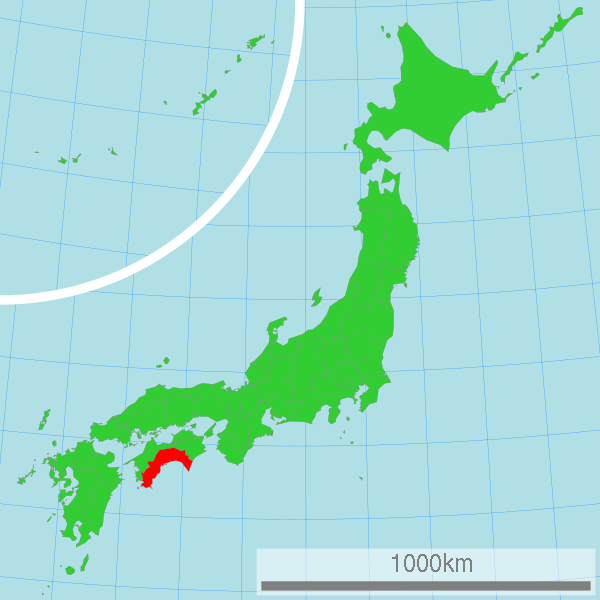
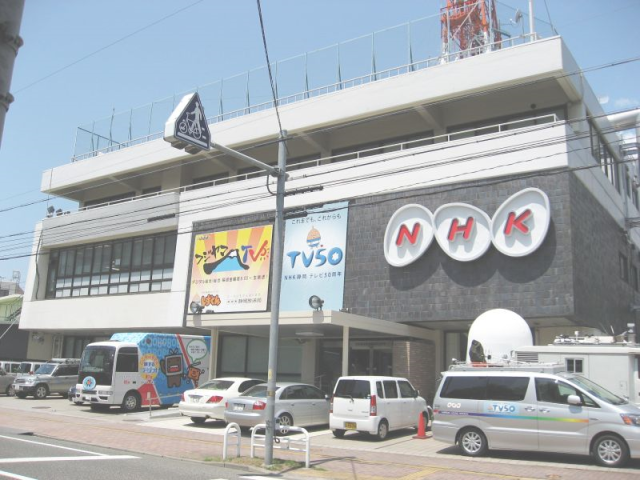
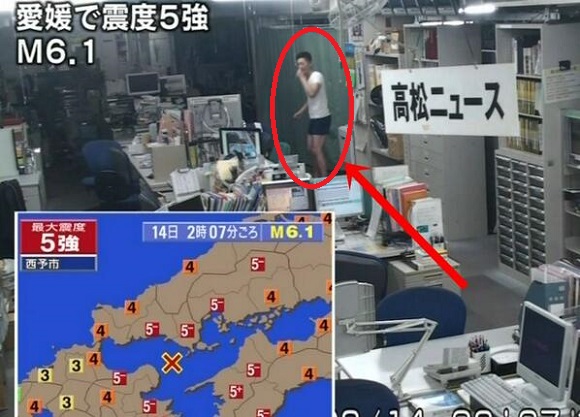
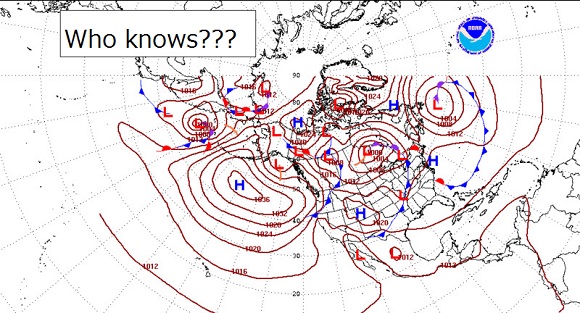

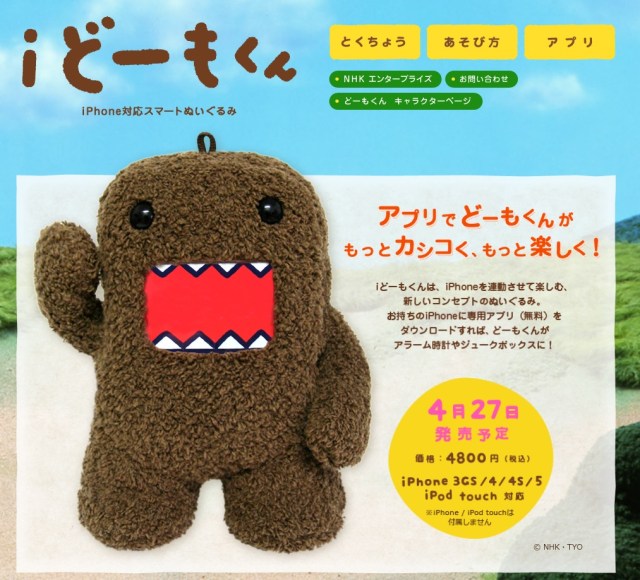
 Viral Japanese cheesecake from Osaka has a lesser known rival called Aunt Wanda
Viral Japanese cheesecake from Osaka has a lesser known rival called Aunt Wanda The best Hobonichi diaries, covers and stationery for 2026
The best Hobonichi diaries, covers and stationery for 2026 Which convenience store onigiri rice balls are the most popular? Survey reveals surprising results
Which convenience store onigiri rice balls are the most popular? Survey reveals surprising results Potama serves up epic rice balls like no other, and there’s only one store in Tokyo
Potama serves up epic rice balls like no other, and there’s only one store in Tokyo Ramen for 99 yen?!? Best value-for-money noodles found at unlikely chain in Japan
Ramen for 99 yen?!? Best value-for-money noodles found at unlikely chain in Japan Studio Ghibli director Hayao Miyazaki reveals the name of his next feature film
Studio Ghibli director Hayao Miyazaki reveals the name of his next feature film Drift ice in Japan is a disappearing winter miracle you need to see now
Drift ice in Japan is a disappearing winter miracle you need to see now What’s the deal with akebi, the perfectly purple, alien-like fruit that’s in season now in Japan?
What’s the deal with akebi, the perfectly purple, alien-like fruit that’s in season now in Japan? Japan Extreme Budget Travel! A trip from Tokyo to Izumo for just 30,000 yen [Part 2]
Japan Extreme Budget Travel! A trip from Tokyo to Izumo for just 30,000 yen [Part 2] Pikachu donuts set to return to Mister Donut, bringing new Pokémon sweets and merch too
Pikachu donuts set to return to Mister Donut, bringing new Pokémon sweets and merch too Starbucks Japan releases first-ever Hinamatsuri Girls’ Day Frappuccino
Starbucks Japan releases first-ever Hinamatsuri Girls’ Day Frappuccino Japanese restaurant chain serves Dragon Ball donuts and Senzu Beans this spring
Japanese restaurant chain serves Dragon Ball donuts and Senzu Beans this spring Highest Starbucks in Japan set to open this spring in the Tokyo sky
Highest Starbucks in Japan set to open this spring in the Tokyo sky Tokyo Skytree turns pink for the cherry blossom season
Tokyo Skytree turns pink for the cherry blossom season Japan Extreme Budget Travel! A trip from Tokyo to Izumo for just 30,000 yen [Part 1]
Japan Extreme Budget Travel! A trip from Tokyo to Izumo for just 30,000 yen [Part 1] Yakuzen ramen restaurant in Tokyo is very different to a yakuza ramen restaurant
Yakuzen ramen restaurant in Tokyo is very different to a yakuza ramen restaurant Japan has only one airport named after a samurai, so let’s check out Kochi Ryoma【Photos】
Japan has only one airport named after a samurai, so let’s check out Kochi Ryoma【Photos】 Japanese drugstore sells onigiri at pre-stupid era prices, but how do they compare to 7-Eleven?
Japanese drugstore sells onigiri at pre-stupid era prices, but how do they compare to 7-Eleven? Adorable Totoro acorn key holders come with a special guest hidden inside[Photos]
Adorable Totoro acorn key holders come with a special guest hidden inside[Photos] Japan’s newest Shinkansen has no seats…or passengers [Video]
Japan’s newest Shinkansen has no seats…or passengers [Video] Starbucks Japan releases new sakura goods and drinkware for cherry blossom season 2026
Starbucks Japan releases new sakura goods and drinkware for cherry blossom season 2026 Foreigners accounting for over 80 percent of off-course skiers needing rescue in Japan’s Hokkaido
Foreigners accounting for over 80 percent of off-course skiers needing rescue in Japan’s Hokkaido Super-salty pizza sends six kids to the hospital in Japan, linguistics blamed
Super-salty pizza sends six kids to the hospital in Japan, linguistics blamed Starbucks Japan unveils new sakura Frappuccino for cherry blossom season 2026
Starbucks Japan unveils new sakura Frappuccino for cherry blossom season 2026 Foreign tourists in Japan will get free Shinkansen tickets to promote regional tourism
Foreign tourists in Japan will get free Shinkansen tickets to promote regional tourism The 10 most annoying things foreign tourists do on Japanese trains, according to locals
The 10 most annoying things foreign tourists do on Japanese trains, according to locals Take a trip to Japan’s Dododo Land, the most irritating place on Earth
Take a trip to Japan’s Dododo Land, the most irritating place on Earth Naruto and Converse team up for new line of shinobi sneakers[Photos]
Naruto and Converse team up for new line of shinobi sneakers[Photos] Is China’s don’t-go-to-Japan warning affecting the lines at a popular Tokyo gyukatsu restaurant?
Is China’s don’t-go-to-Japan warning affecting the lines at a popular Tokyo gyukatsu restaurant? Survey asks foreign tourists what bothered them in Japan, more than half gave same answer
Survey asks foreign tourists what bothered them in Japan, more than half gave same answer Japan’s human washing machines will go on sale to general public, demos to be held in Tokyo
Japan’s human washing machines will go on sale to general public, demos to be held in Tokyo Starbucks Japan releases new drinkware and goods for Valentine’s Day
Starbucks Japan releases new drinkware and goods for Valentine’s Day We deeply regret going into this tunnel on our walk in the mountains of Japan
We deeply regret going into this tunnel on our walk in the mountains of Japan Studio Ghibli releases Kodama forest spirits from Princess Mononoke to light up your home
Studio Ghibli releases Kodama forest spirits from Princess Mononoke to light up your home Major Japanese hotel chain says reservations via overseas booking sites may not be valid
Major Japanese hotel chain says reservations via overseas booking sites may not be valid Put sesame oil in your coffee? Japanese maker says it’s the best way to start your day【Taste test】
Put sesame oil in your coffee? Japanese maker says it’s the best way to start your day【Taste test】 No more using real katana for tourism activities, Japan’s National Police Agency says
No more using real katana for tourism activities, Japan’s National Police Agency says Studio Ghibli director Hayao Miyazaki reveals the name of his next feature film
Studio Ghibli director Hayao Miyazaki reveals the name of his next feature film Drift ice in Japan is a disappearing winter miracle you need to see now
Drift ice in Japan is a disappearing winter miracle you need to see now What’s the deal with akebi, the perfectly purple, alien-like fruit that’s in season now in Japan?
What’s the deal with akebi, the perfectly purple, alien-like fruit that’s in season now in Japan? Japan Extreme Budget Travel! A trip from Tokyo to Izumo for just 30,000 yen [Part 2]
Japan Extreme Budget Travel! A trip from Tokyo to Izumo for just 30,000 yen [Part 2] Pikachu donuts set to return to Mister Donut, bringing new Pokémon sweets and merch too
Pikachu donuts set to return to Mister Donut, bringing new Pokémon sweets and merch too Starbucks Japan releases a new Frappuccino that looks and tastes like a floral bouquet
Starbucks Japan releases a new Frappuccino that looks and tastes like a floral bouquet One of Japan’s rarest sweets is a sell-out hit that looks and tastes like frost
One of Japan’s rarest sweets is a sell-out hit that looks and tastes like frost Senkoji: The Japanese temple that’s more like a theme park to heaven and hell
Senkoji: The Japanese temple that’s more like a theme park to heaven and hell Coca-Cola adds new limited-edition design to their seasonal bottle range available only in Japan
Coca-Cola adds new limited-edition design to their seasonal bottle range available only in Japan Getting a driver’s license in Japan the hard way: The first driving test a few more times
Getting a driver’s license in Japan the hard way: The first driving test a few more times Starbucks Japan releases new Chocolate Milk for Valentine’s Day
Starbucks Japan releases new Chocolate Milk for Valentine’s Day Family Mart ups its convenience store food game with special burger from beef bowl chain Matsuya
Family Mart ups its convenience store food game with special burger from beef bowl chain Matsuya